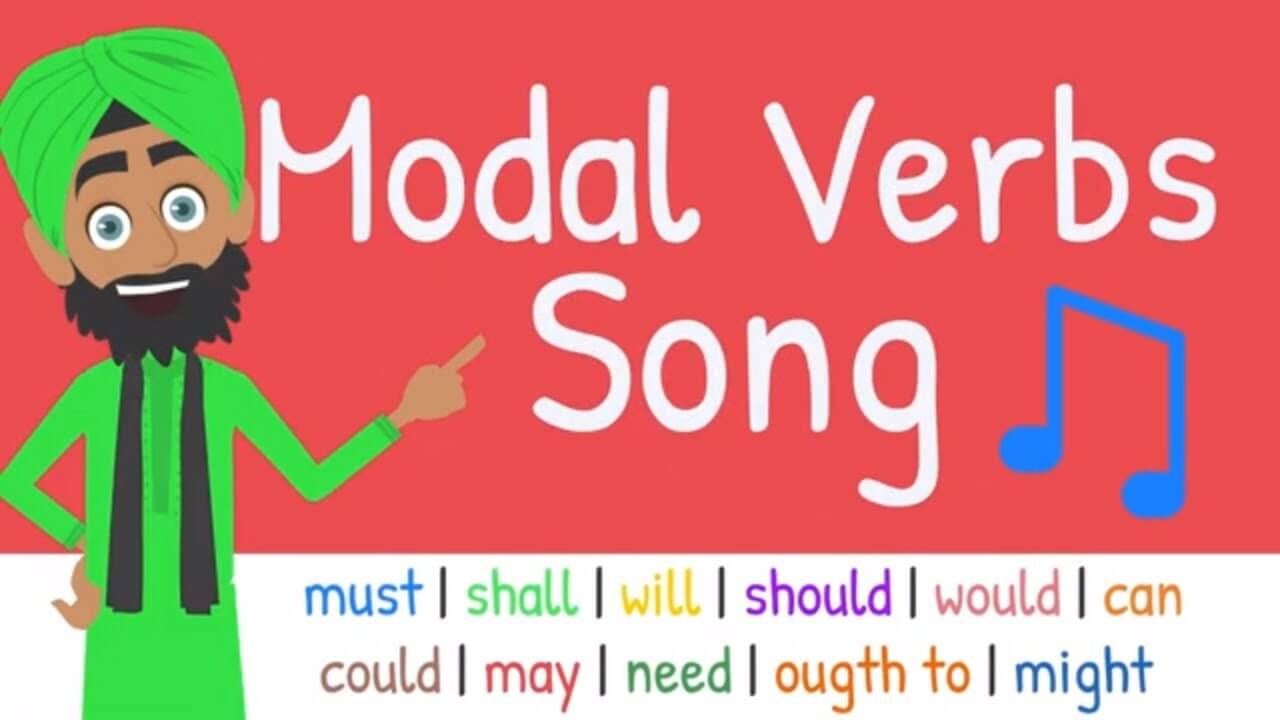- What are modal verbs?
What are Modal Verbs?
What are modal verbs? Modal verbs are a type of verb used to indicate modality – which, in essence, means that they show when things are ‘needed’, ‘likely’ or possible. They can also indicate the ability of something to do something.They are words that change the meaning of another verb.
This can all sound a bit complicated and trying to get my head around it to write a song was a little difficult.
For instance look at the definition of modal verbs below!
“A modal verb is a type of verb that is used to indicate modality – that is: likelihood, ability, permission, request, capacity, suggestions, order, obligation, or advice. Modal verbs always accompany the base (infinitive) form of another verb having semantic content.[1] In English, the modal verbs commonly used are can, could, must, should, had better, have to and sometimes need or dare. In English and other Germanic languages, modal verbs are often distinguished as a class based on certain grammatical properties.” – Wikipedia
How do you make a song out of that?! Especially one that primary school aged children can understand? Well it turns out it not quite as complicated as it sounds. It’s difficult to explain but we all use them in our speech and writing from a very early age.
What are modal verbs? Essentially modal verbs are words such as can, could, would, should, may, need, ought to, will, won’t, can’t, couldn’t, wouldn’t, shouldn’t, etc. and most of these verbs are regularly and naturally used by children in their writing and speech.
What are Modal Verbs? – Examples of modal verbs in sentences.
You shouldn’t fight with a Bear.
Could i sit in your chair?
I can ride a bike.
I will eat chocolate chocolate whenever I like!
You mustn’t shout so loud.
Can I stop now the field is ploughed?
I shall be the winner!
I would eat chicken at every dinner.
Can I drive you fast?
You should forget the past.
You shouldn’t worry too much.
You can look but you can’t touch!
I should know how to juggle.
Though I would normally struggle.
These are special verbs that show advice, give permission, show ability and habits. You can invert them to create questions but they don’t generally work alone. In nearly all cases they effect another verb in the sentence.
What are Modal Verbs? – Contracted Forms
You may also notice in the list above that they often come in contracted forms. This is especially prevalent when following a pronoun such as “I”, “we”, “he” or “she” for example. You can find out more about pronouns by listening to the “Pronoun Song” on our Silly School Education Youtube Channel!
I’ll do it this evening
She’ll make it.
He knew they’d score.
What are Modal Verbs? – Inverted Forms
An example of inverting a modal verb to create a question could be “We should eat ice cream” becoming “Should we eat ice cream?”
Watch this fun animated song to find out more!
English Grammar Songs
Our wide range of English grammar songs are a really fun and engaging way to enhance the children’s learning, whilst teaching them the complexities of of the English language. Our educational songs are engaging and easy to learn. They are clear, with a concise message and perfect for classroom and homeschool teaching.
Silly School Education’s catchy songs are a great way of improving vocabulary and speaking and listening skills, covering a wide range of grammar topics including nouns, proper nouns, adjectives, verbs, adverbs, pronouns and many more.
All of our animated songs are based around the National Curriculum and suitable for EYFS, Key Stage One (KS1) and Key Stage Two (KS2). They also available completely free via the Silly School Education Youtube Page. You can learn more about what what we do and who we are by visiting our “About Us” page!

